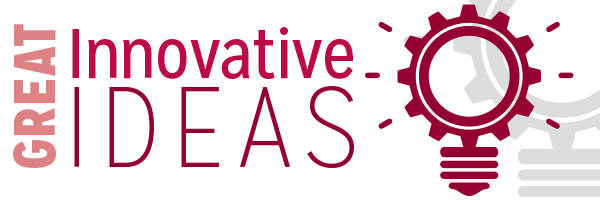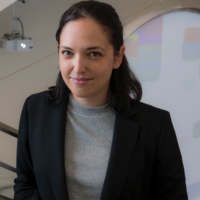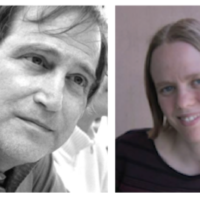As We May Hear: Our Slaves of Steel II
 The following Great Innovative Idea is from Mark Bernstein, the chief scientist at Eastgate Systems, Inc. Mark was one of the winners at the recent Computing Community Consortium (CCC) sponsored Blue Sky Ideas Conference Track at the 29TH ACM Conference on Hypertext and Social Media, July 9-12, 2018 in Baltimore, MD. His paper is called “As We May Hear: Our Slaves of Steel II.”
The following Great Innovative Idea is from Mark Bernstein, the chief scientist at Eastgate Systems, Inc. Mark was one of the winners at the recent Computing Community Consortium (CCC) sponsored Blue Sky Ideas Conference Track at the 29TH ACM Conference on Hypertext and Social Media, July 9-12, 2018 in Baltimore, MD. His paper is called “As We May Hear: Our Slaves of Steel II.”
The Idea
Everyone’s everyday knowledge work is increasingly tied up with personal agents that one gradually trains to help in the work. In the paper, we imagine a restaurant host (or a diplomatic aide) working with a chorus of audio advisors to identify patrons (or diplomats) and to identify their needs and preferences. Though audio hypertext research dates back a generation, we know remarkably little about scriptwriting for the medium, especially for managing the dramatized interplay between disparate agents that disagree.
Impact
A great deal of nonsense has been written about the nature of “the digital.” I suspect that architect-philosopher Lars Spuybroek in The Sympathy Of Things offers a novel and important approach to thinking about mass production of unique, personal items and about the bond between people and things. These ideas most directly impact literary computing — an esoteric domain of vast future importance since the future of serious reading clearly lies on the screen. The broader question of how we ought to treat computational constructs and other unique artifacts is made more pressing by the clear importance of learning how better to treat the planet.
Other Research
I write hypertext systems like Tinderbox, a writer’s tool for analyzing and visualizing notes. I recently wrote a hypertext novel, Those Trojan Girls, and have been studying the villainous propensities of social media systems in the wake of Gamergate and the elections of 2016
Researcher’s Background
I earned my degree in physical chemistry, worked a bit in machine learning, and wound up as a student of the hypertext link in its many forms.
Links
Work: https://www.eastgate.com/Tinderbox/ Personal: http://markBernstein.org/










